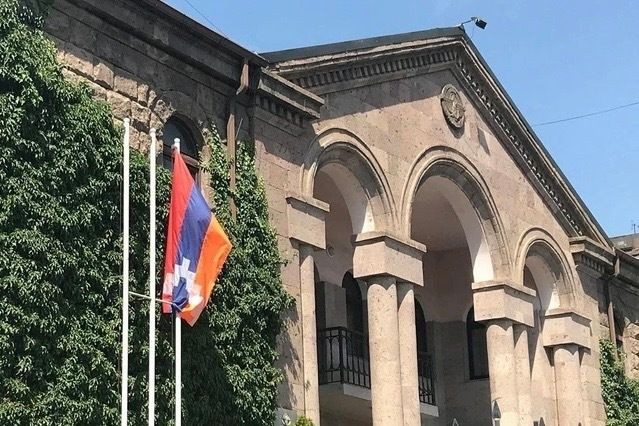Nagorno-Karabakh Armenians appeal to OSCE states to prevent dissolution of the Minsk Group

The representatives of Nagorno-Karabakh Armenians have submitted an appeal to the OSCE participating states, urging them ‘to exercise their powers, including the right of veto if necessary, to prevent the dissolution of the Minsk Group’.
By the agreement reached on 8 August in Washington, a joint appeal by Armenia and Azerbaijan regarding the closure of the OSCE Minsk process and related structures was circulated to the OSCE participating states on 11 August.

The appeal text was published on Wednesday, signed by Ashot Danielyan, President of the Nagorno-Karabakh Parliament, on behalf of all factions and members of the National Assembly.
Danielyan was elected to this position by the region’s parliament in late May 2025. The Armenian government rejects housing any Nagorno-Karabakh state institutions in exile, citing the threats it poses for Armenia.

It noted that ‘on behalf of the 150,000 Armenians of Nagorno-Karabakh [...] forcibly displaced from their ancestral homeland’, they address the member states ‘with deep urgency and grave concern’ regarding the what they called ‘unilateral request’ by Armenia and Azerbaijan to terminate the mandate of the OSCE Minsk Group.
The OSCE Minsk Group, headed by co-chairs France, Russia, and the US, was the main venue for negotiations between Armenia and Azerbaijan prior to the Second Nagorno-Karabakh War in 2020.
Its dissolution was one of the main preconditions pushed by Azerbaijan for the signing of the peace treaty, the text of which was agreed in mid-March. Despite being initialed in Washington earlier in August, it remains unsigned.
The decision to submit a joint application came despite Yerevan’s earlier position, which proposed signing the peace treaty and jointly applying for the dissolution of the Minsk Group structures ‘simultaneously’.
The appeal noted that it would be ‘disregard’ to their voice and a denial of their role in the process if the structure were dissolved ‘without consulting the elected representatives of the people for whom it was established’.
They called on the OSCE participating states to exercise their authority to prevent the dismantling of this framework ‘until robust guarantees are in place to ensure the safe and dignified return of the displaced Armenian population of Nagorno-Karabakh’.
‘The conflict cannot be deemed resolved while an entire population remains uprooted, deprived of its inalienable rights’, the appeal read.
The message concluded with a note that legitimising ‘the ethnic cleansing carried out by Azerbaijan in Nagorno-Karabakh and considering the conflict resolved would leave an indelible and bloody stain on the history, authority, and principles of the OSCE’.
Earlier this week, Armenian Prime Minister Nikol Pashinyan called the discussion of the return of Armenian and Azerbaijani refugees ‘a dangerous factor’ which ‘damages’ the peace established since the Washington agreements on 8 August.

For ease of reading, we choose not to use qualifiers such as ‘de facto’, ‘unrecognised’, or ‘partially recognised’ when discussing institutions or political positions within Abkhazia, Nagorno-Karabakh, and South Ossetia. This does not imply a position on their status.











